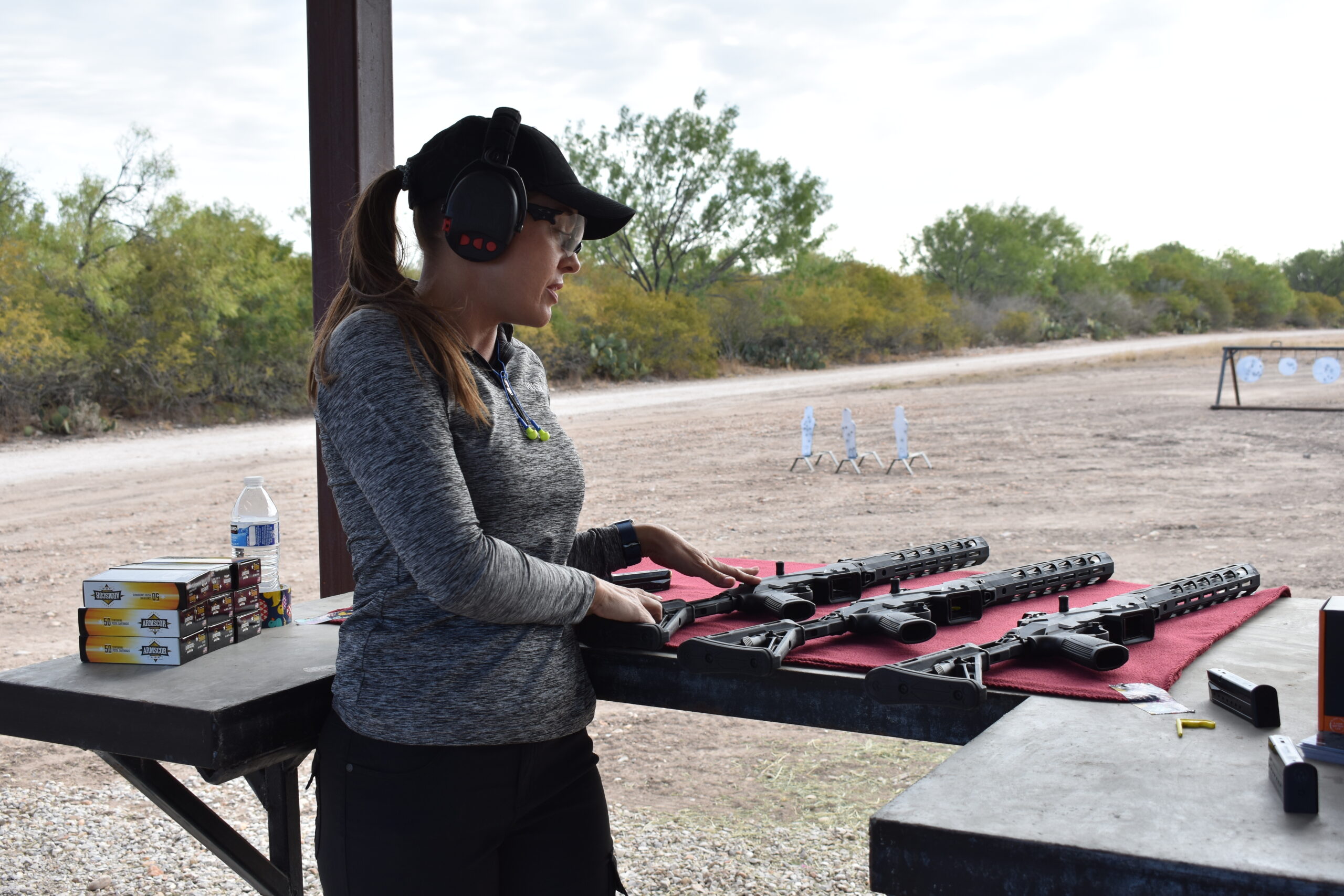Demystifying Competitive Shooting
Even if you are already familiar with guns, starting into competition is still a different world than what you are accustomed to. Everything gets a little more specific – the gun you use, the ammunition you choose, etc. Starting out can be very overwhelming, but it doesn’t have to be.

According to the National Shooting Sports Foundation (NSSF), there were approximately 5 million first-time gun buyers in 2020[1]. Think about it. Five million people largely unfamiliar with firearms, all choosing to purchase their first firearm for various reasons. While the swell of 2020 first-time gun owners are largely interested in self-defense and personal protection, competition is a fun and engaging way to become more familiar with firearms and develop new skills sets.
Even if you are already familiar with guns, starting into competition is still a different world than what you are accustomed to. Everything gets a little more specific – the gun you use, the ammunition you choose, etc. Starting out can be very overwhelming, but it doesn’t have to be. The first thing to ask yourself is why. Why are you thinking about competition? Do you want to improve your marksmanship skills? Are you looking for a new hobby? Do you want to become a better hunter? Maybe it’s just curiosity. Whatever the reason or reasons, write it down.

When you start competing it is easy to get caught up in scores and comparisons. The only true path to success is sticking to your goals and remembering why you started in the first place. You should also never feel stuck. It should never be a chore to go out to the range. If it begins to feel that way, you need to reevaluate what you are doing and why.
What exactly is competition? In very simplistic terms, shooting sports competitions involve multiple people using firearms in a safe manner with goals of hitting certain targets. These participants are scored or ranked in some way to provide feedback on how the shooter is performing. You do not have to be a professional shooter to be a competitor, and competitors in the shooting sports are athletes. Various shooting disciplines are NCAA sports in colleges and have Olympic teams. Though not all shooting disciplines have these same levels, they all involve mental and physical challenges.

In most cases, shooting events are either called matches or tournaments. There is a clear distinction. Shooting events are not games – firearms are to be respected and to be used safely. (There are Games Matches, but they are still matches.) Learning to shoot accurately also plays into survival skills, self-defense, and hunting – benefits that more traditional sports like baseball or football do not offer. There are both sanctioned and unsanctioned competitions. Sanctioned essentially means sponsored by or following a certain set of rules by a governing body or organization. Think about it like this. There are different rules for recreation league soccer for elementary school kids than there are for college soccer players. The size of the field is larger and the offsides rule comes into play. Different governing bodies establish different rules. For example, the two main governing bodies of the high-power service rifle discipline are the Civilian Marksmanship Program (CMP) and National Rifle Association (NRA). Both run slightly different styles of the same competitions. In NRA matches, competitors start rapid-fire stages from position while in most CMP competitions, competitors must stand up before assuming position.
Different shooting disciplines have different governing bodies. USA Shooting, International Defensive Pistol Association (IDPA), Amateur Trapshooting Association (ATA), Steel Challenge, and the National Benchrest Shooters Association (NBRSA), are only a few of the many organizations dedicated to the promotion of the shooting sports. Do not get lost in the weeds starting out. You do not need to memorize all of the different rules for each discipline and organization. Your first task is to pick one.
Remember that reason for shooting you wrote down? Whatever it is will help you determine what is best for you. If you want to become more proficient with a pistol and learn self-defense skills, IDPA may be a good route. If you prefer the challenge of shooting far distances, look to high power service rifle, long range, or precision rifle. Perhaps you are a bird hunter looking to improve during the off-season? Spend some time shooting sporting clays. Whatever you choose, you are never wedded to it. Different sports work for people at different times of their lives. Laws by state make it easier or harder to compete in different disciplines.

Also think about how much time and money you have or want to invest in a sport. You do not have to run out and spend money right away. Many local clubs have unsanctioned matches that are essentially for fun or practice. These sorts of events have less-pressure than sanctioned matches and are great opportunities to learn. Generally, not having a perfectly competition-legal firearm (barrel length, handguard, etc.) is not a huge obstacle to trying the sport at these venues. Most people will also lend you their equipment for you to use so that you can make an informed decision and have the experience without a huge initial investment. Think of it as test driving a car rather than buying one never having driven it.
While it is important to have quality equipment, the skills of the shooter generally have a greater effect on scores. Putting in the time to practice and improve in whatever you choose is often a better investment than buying the most expensive firearm possible. I remember hearing about two friends who went out to shoot trap on a regular basis. One had a very basic shotgun while the other spent thousands of dollars on an expensive foreign model. Every night they shot together, the man with the budget shotgun would shoot 22 out of 25 targets and the man with the expensive gun would shoot 24 out of 25. One night they switched guns and they both shot the same score they fired previously with their own firearms.

What most people say is the best thing about competitive shooting is the camaraderie. Every match or event is a sort of family reunion. You have the opportunity to meet like-minded people of all ages and walks of life from across the country and around the world, and to make friends you otherwise never would have. While you will always have some personality clashes, the shooting sports are extremely diverse, attracting people who are students, doctors, lawyers, accountants, tradesmen, custodians…the list goes on and on. You learn from the people around you and about yourself as you learn a new skill and work towards bettering your own performance. At the end of the day, you are always competing against yourself, trying to do better than you did the time before. The shooting sports also allow you to compete as an individual and on a team, introducing both dynamics, teaching you to depend on yourself and on others. The versatility of the shooting sports is truly unmatched.
Do not let the idea of “competition” scare you. The level of competition you participate in is truly up to you and you get out of it what you put in. Choosing to graduate from backyard plinking to a more formal type of shooting teaches you self-discipline, confidence, and so much more while introducing you to an entirely new set of people who can change your life.
[1] First-Time gun Buyers grow to nearly 5 million in 2020 • nssf. (2020, August 24). https://www.nssf.org/first-time-gun-buyers-grow-to-nearly-5-million-in-2020/#:~:text=NSSF%2Dadjusted%20NICS%20checks%20for,first%20seven%20months%20of%202020.&text=Keane%2C%20NSSF%20Senior%20Vice%20President%20of%20General%20Counsel.
